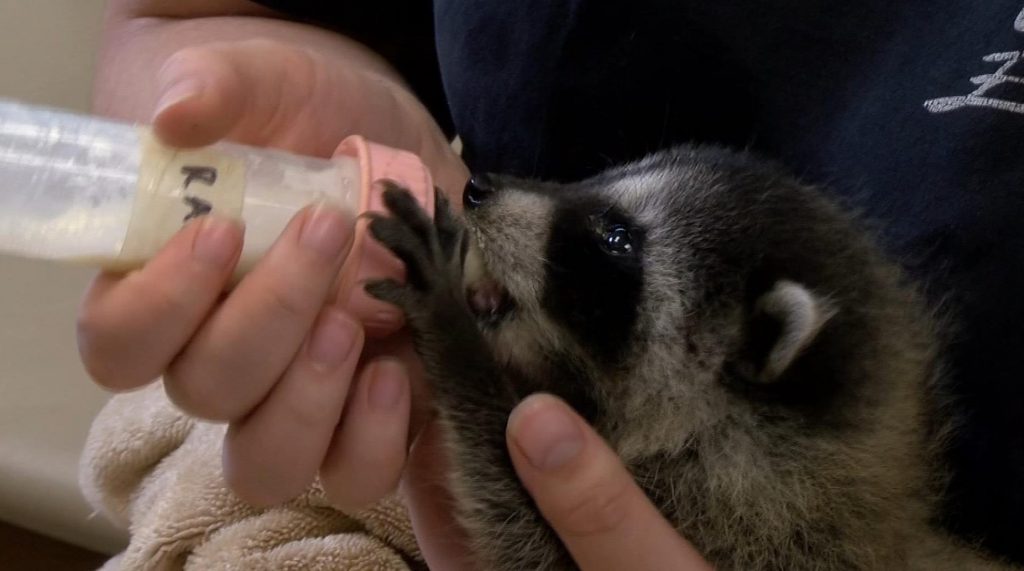
WATCH: Mountainaire Avian Rescue Society in Merville has seen a sharp increase in the number of fawns and baby raccoons (kits) in its care. As a result, MARS is asking for donations to help purchase goat’s milk to feed them.
The fawns in the care of MARS are cute but costly to look after.
Mountainaire Avian Rescue Society has seen a sudden influx of fawns and they’re hungry all the time.
“We’re spending about $7 to $10 a day per fawn,” stated Jo Stiles, a volunteer caregiver at MARS. “That’s for their goat’s milk and the additives we’re putting into their goat’s milk.”
Their stories aren’t unusual. Many of their mothers have been killed on the road.
“We probably had ten in the span of a week. I think I probably had four fawns come in one day where the doe had all been hit by cars,” said animal care technician Kiersten Shyian.
Many fawns have also literally been kidnapped by well-meaning people.
“People don’t realize that a fawn is on its own for a large part of the day,” said Stiles. “Mom kind of parks it in a little safe area and people will see these baby fawns, they think completely on their own, they’ll scoop them up and bring them to us.”
MARS is also caring for about two dozen baby raccoons.
“I found that a lot of this year’s problems with raccoons are people wanting to get rid of raccoons,” said Shyian. “They say we don’t want raccoons, they’re pests can we get rid of them? And we’re not in the business of relocating raccoons. If they’re healthy and they’re fine where there are leave them there.”
This is the first year MARS is looking after raccoons. They’re normally sent to Wild Arc in Victoria.
“We are still scrambling. We are scrambling to build pens for them because we just don’t have the money to build the pens that we need especially as these babies grow up a little bit,” added Stiles.
The fawns and baby raccoons are all eating a mixture of goat’s milk supplemented with fats, vitamins, minerals and protein. It’s not cheap and MARS is seeking donations so it can specifically buy pasteurized goat’s milk to feed the animals for several more months until they are released.
You can find more information on how to donate here.





